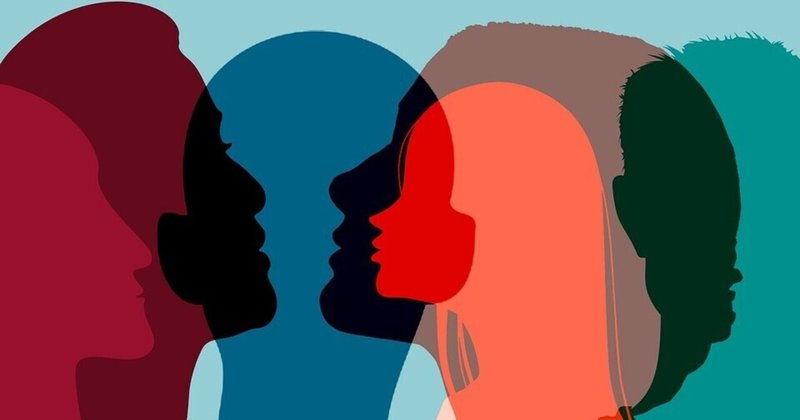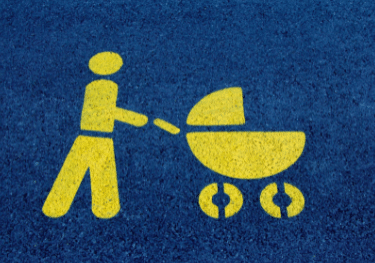
It’s not Just an Issue Concerning Women - Gender equality is a Worldwide Effort
What is gender anyway? How gender norms and images are created:
Don’t issues around gender only concern women? Who begs to differ?
This may be sudden, but what people normally infer when they hear the word “gender” may have a different meaning than one may think.
The term gender refers not just to the biological differences of the sexes, but adds upon it the societal and cultural differences inherent within just the biological nature, hence the word: gender. In other words, gender is defined upon the societal expectations and the roles that are culturally ingrained upon us as we live as men or women. Thus, gender does not only include men or women, but it also includes the LGBTQ+ community.
Let’s look at what “society” and “culture” really mean in this context.
“Culture” is defined as the lessons we are taught as a group society, as well as how we communicate amongst each other. The typical perception, however, is that culture relates to one’s lifestyle. Culture surrounds traditions, ways of thought, shared values, the media, education, and other various factors that are formed as a society evolves.(via/コトバンク)
On the other hand, “society” is explained as a sustained population of individuals who live in a tight-knit community, or those that share common characteristics with one another. As humans, we create a world separate from in which we actually exist, forming certain rules of order or disciplines of which we must live by, thereby defining it as “a society”.(via/コトバンク)
Up until this point in time, society has upon “culture” to mean that women are supposed to be a certain way, much likewise, men are supposed to behave a certain way as well. But these images were only standardized and normalized as parts of our biological history. People hold to these beliefs, and recognize “society” as a system that reflects these types of values.
Moreover, in this system in which we live, we absorb such information, continuing to reproduce these same norms as expressed and ingrained in our minds.
“The issue around gender” is usually conceived by most people that primarily, women have small spaces for opportunity within society. But the truth is that “gender equality” does not only surround issues which affect women.
Our Systems and Senses of which Hide the True Problem:
Why is it so hard for women to advance in society? Why is it so hard for LGBTQ+ to earn the same rights for marriage as heterosexuals? Why does it take so long for our societal systems to change?
Although there are already various gender identities recognized today, educational books and children's novels still only depict men and women as the only identities, where classroom seating charts are still separated by boys and girls. In our current state, the textbooks and teaching styles of our societal system don’t reflect the various identities which are a reality.
Within such environments, genders outside of men and women are not recognized, thereby making such concepts unseen clearly to our perception.
If children are exposed to people of various genders at a young age, they will be more likely to perceive such people as normal, and as a given concept. On the other hand, if we are only exposed to a world separated by men and women, unable to have a chance of interaction with people of different gender identities, we would view our closed-in world as “normal” and the common perception.
As a result, people of genders different from the mere men and women on the spectrum extremes face over exaggerated reactions, where others are unaware of how to even talk to such peers in the various parts of the gender wheel. Thus, they are more likely to experience discrimination, and even segregation, studies have found.

Even the logos and signs around our community reflect images of gender norms.
Up until now, based on the conscious ideas that have been inputted into our minds since we were children, we’ve created a world of order that is separate from the world that we actually live in. Consequentially, that system has been reiterated over and over in our minds that it is essentially ingrained into our common awareness as adults.
The historical allotment of duties separated by men and women are universal, where women are expected principally to create the boundaries of the home, whereas men are expected to form the boundaries of the societal system outside the household. Think back to your history textbooks from high school.
How many times are women mentioned in famous, groundbreaking historical events? The idea of “society” as we have it today is made up of a world essentially of men and their bodies, their ideas and the reinforcement of their inventions into the system that runs our world today. Every small bit of our societal system in history has been formed, and essentially defined, by men.
From these reasons, it makes it that much harder for women to contribute in a system that was made for men, likewise people from any other gender identity. The problems surrounding gender that we see today generally go back to this initial systemic origin. In addition, because this circumstance is seen as the norm by men, these issues of gender aren’t seen as priority by men, nor are they clearly depicted as a fundamental flaw in the system. Thus, the rules have society has not changed and these invisible chains makes it even harder for it to dramatically change.
What kind of biases and assumptions are being presented to us based on the society and systems that we live in? Again, how does gender discrimination and problems of inequality effect the future of our systems adn our evolution of society?
In order to tackle issues around gender, we also have to discuss how we as humans should handle these old ideas and systems which have become antiquated and far from the real world that reflects our society today. In order to preserve the fundamental human rights of all people despite our differences in gender, we need to create services and jobs to build the safety net around these communities.
That’s why “gender issues” requires a universal effort from all people despite origins and ages.
English translation/ Hanako Travin
この記事が気に入ったらサポートをしてみませんか?
